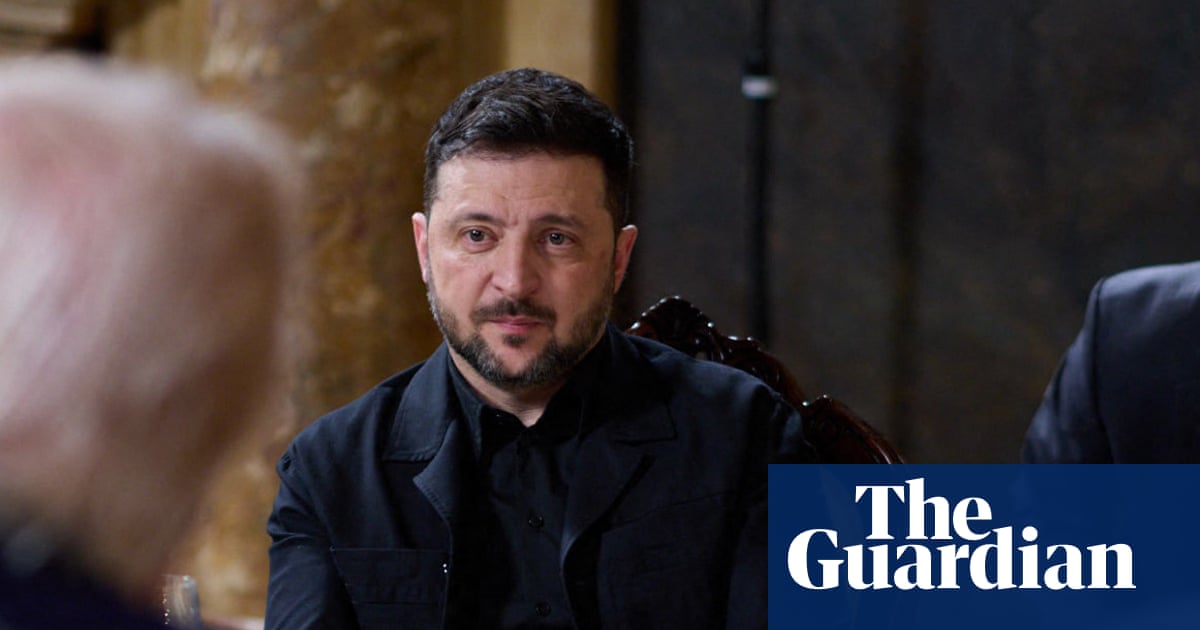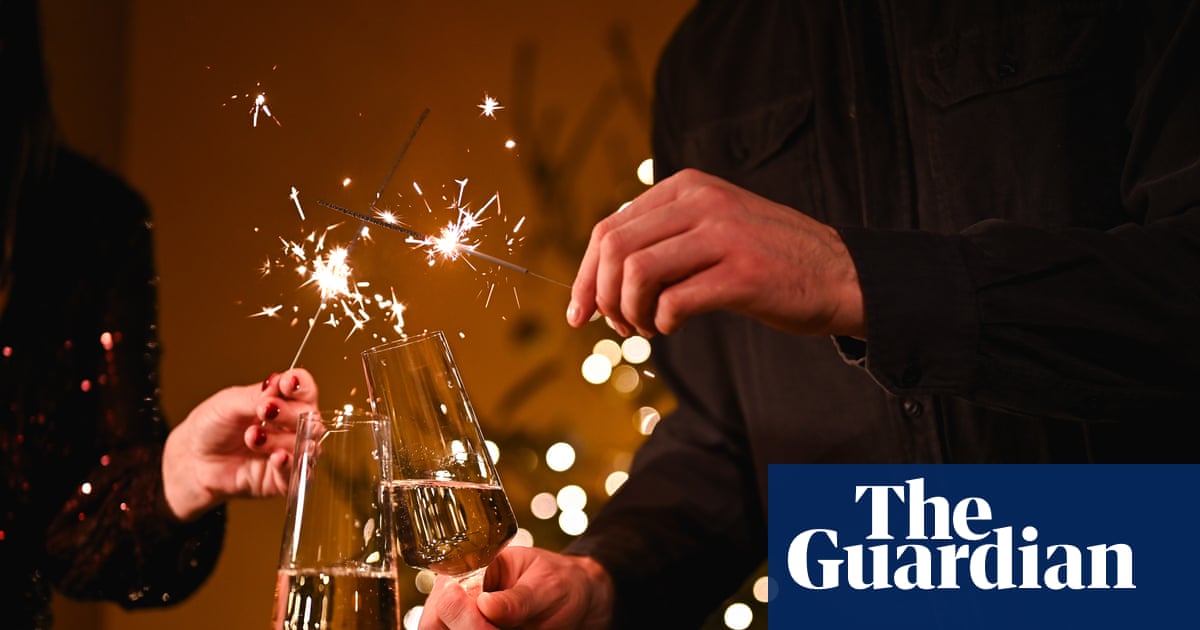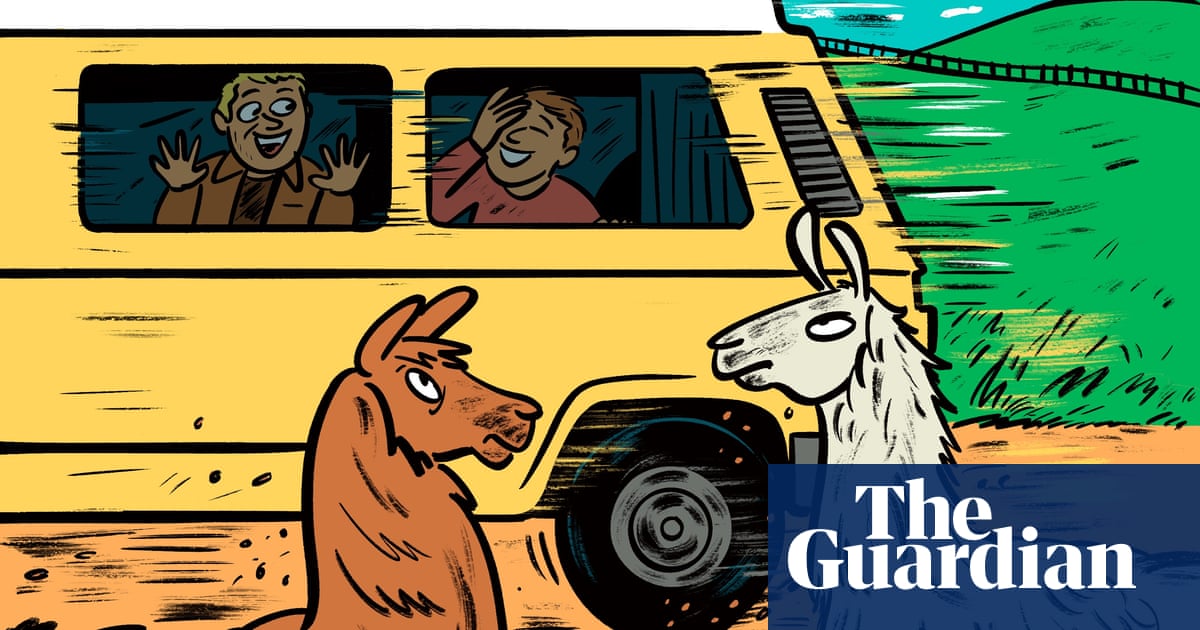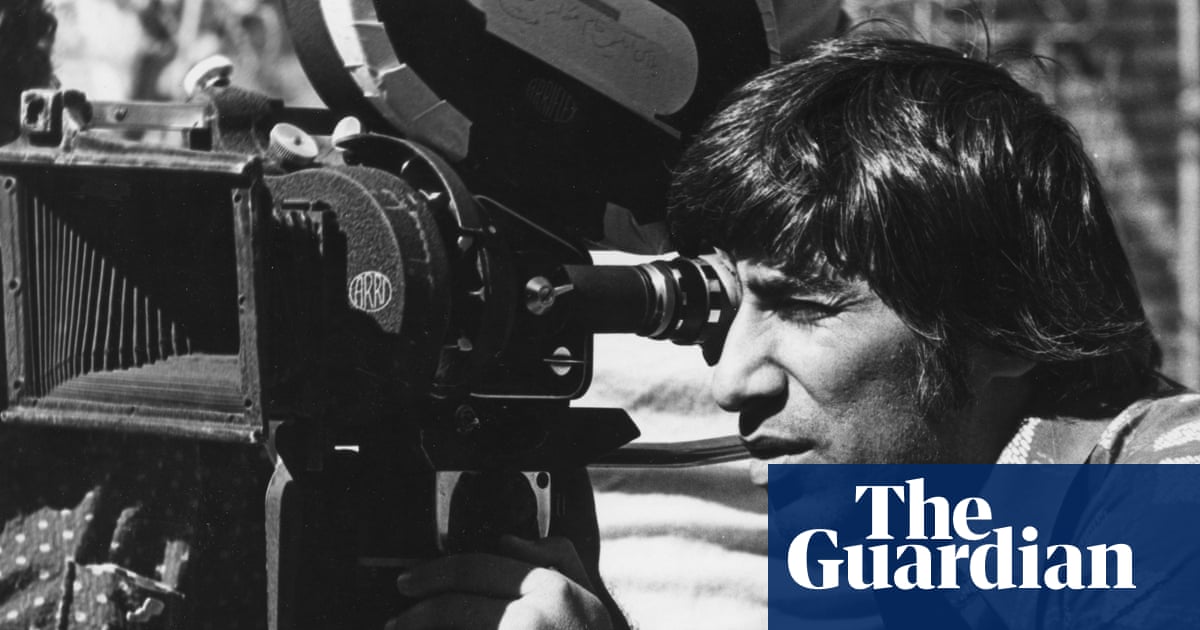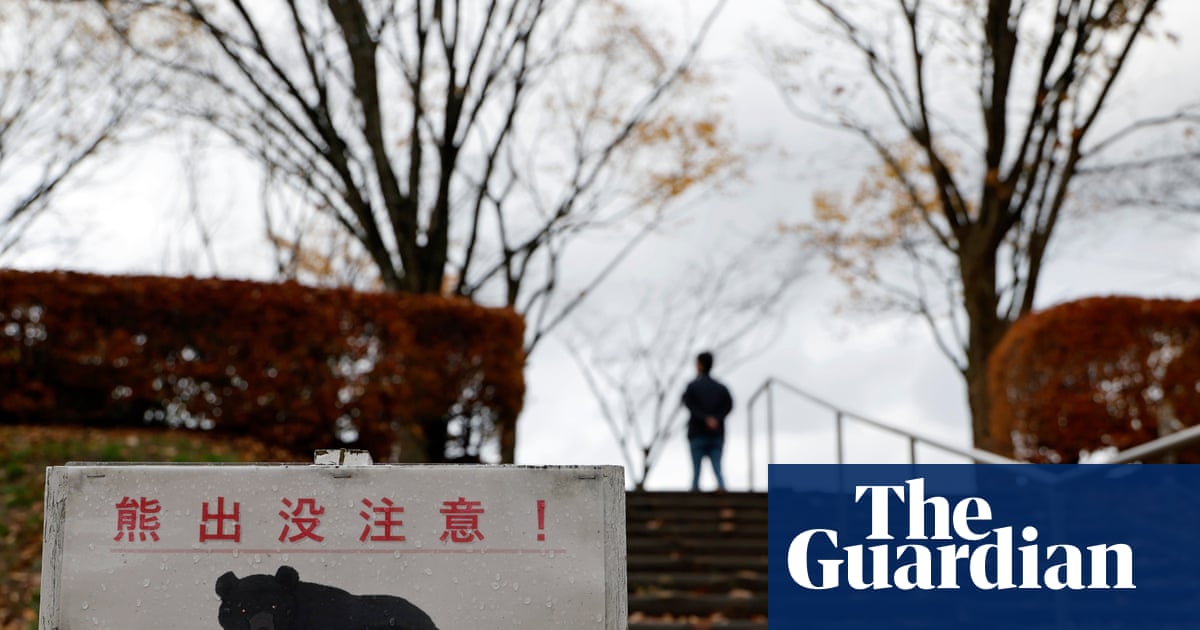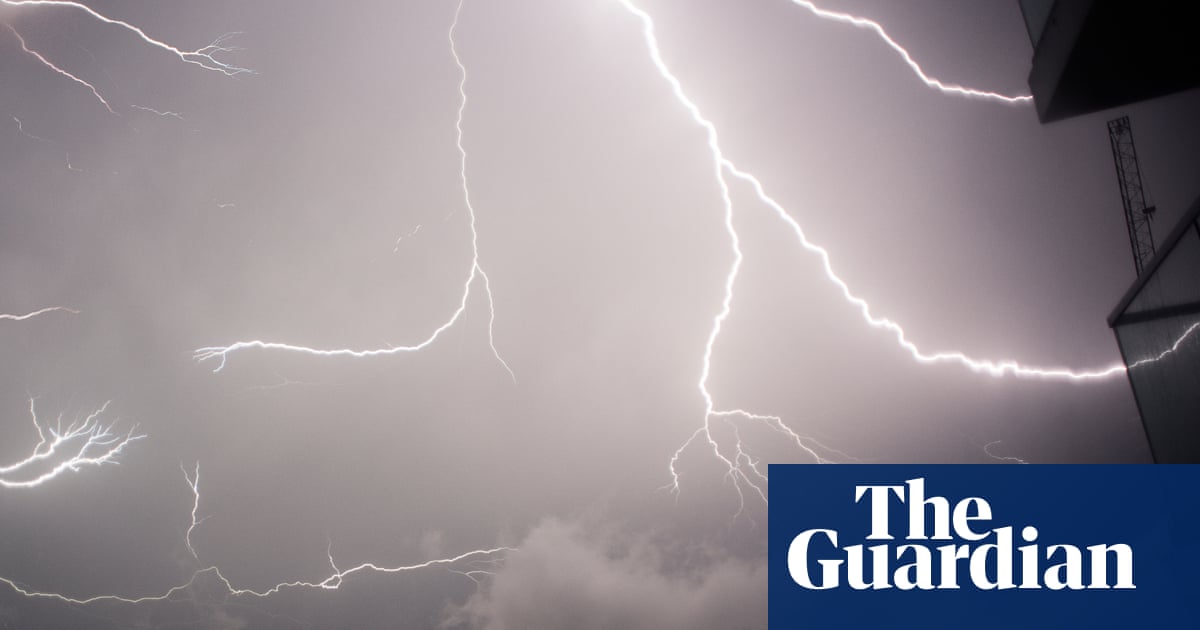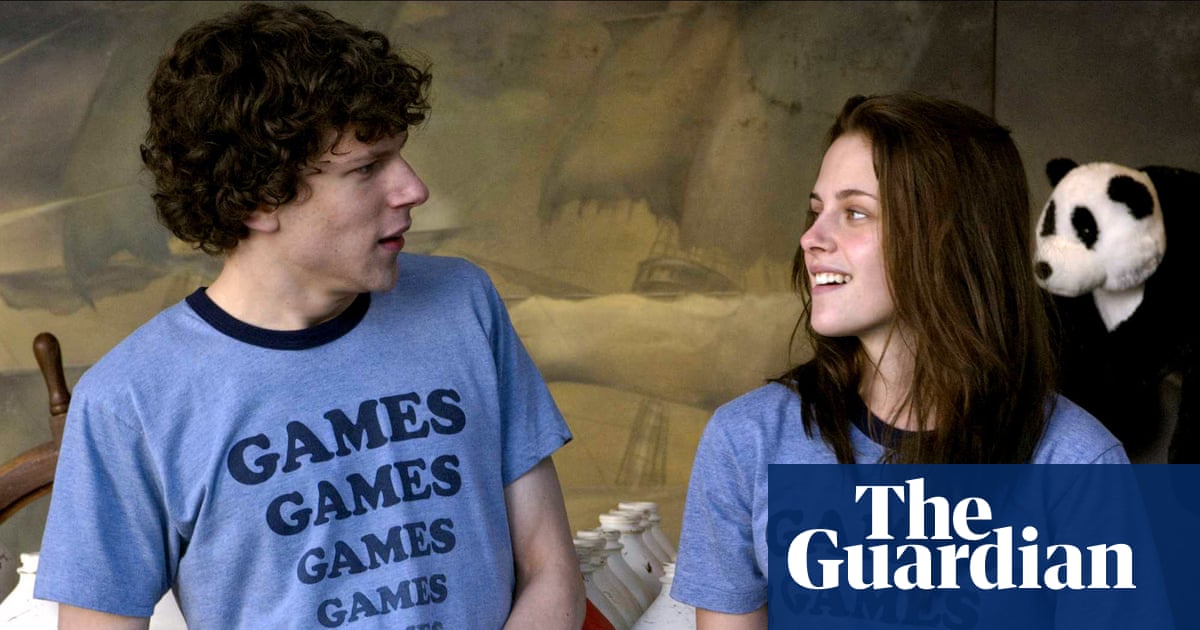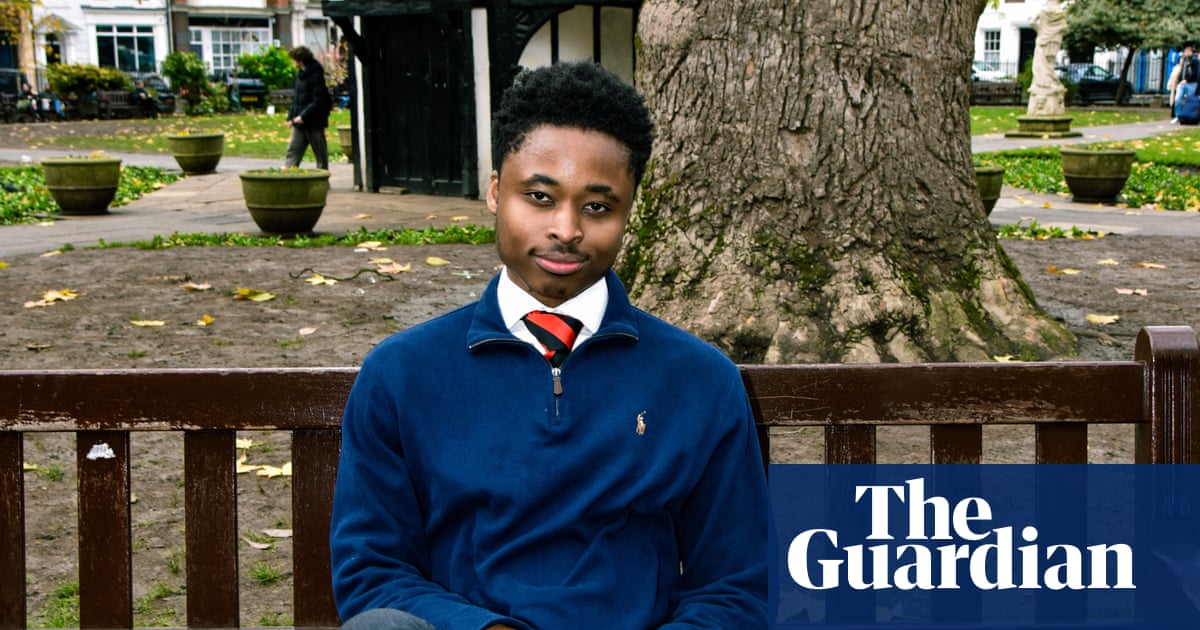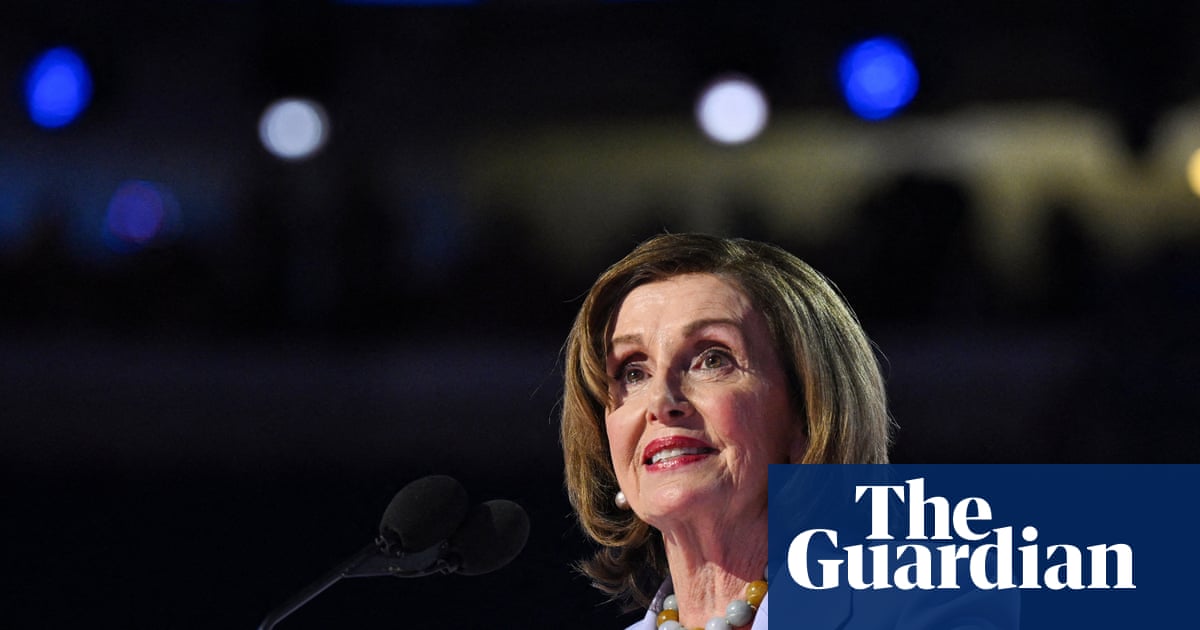Brittany Andrews, a cheerful American porn star, cuts to the chase in her workshop on how to succeed in the adult industry.
“Do you think about how much money you’re going to make before you make a clip? Do you know what stuff sells the best? Or do you just follow your creative spark?” she asks. She points to a young Ukrainian model in a gold sequined bra and denim shorts. “I’m starting with you, girlfriend!”
“We’re all here to earn money. That’s normal,” the model replies. Her main advice, she adds, is to be super organised about uploading content regularly, to prevent subscribers drifting away. “What matters is consistency. There are so many beautiful, amazing models … if you for a moment stop posting, people will forget you pretty fast.”
In a modern riverside hotel in central Amsterdam, about 1,000 adult content creators gathered last Tuesday for the biggest pornography conference in Europe. They had travelled from all corners of the continent for an event designed to help them navigate the industry’s high-pressure gig economy and maximise profits.

A group of elderly Americans, waiting in the lobby for a windmills and Edam tour, watched them arrive with flustered bemusement. Most creators – the euphemistic term for people who record and upload explicit content to sites such as OnlyFans – were dressed down, makeup-free in jeans and trainers. But some came in nine-inch diamante heels, or on pink roller skates with flashing wheels, or with their hair tied in bunches, wearing the Hello Kitty backpacks more usually favoured by preteens.
The annual Xbiz conference lasts three days. It brings creators (primarily but not exclusively women) together with executives (primarily but not exclusively men), as well as model management agencies, online payment and traffic optimisation companies, and content-sharing platforms. There are panel sessions and workshops where creators are given advice on trends in the industry, algorithms and changes in government regulations.
It kicks off with an invitation to down shots at a bar in the city’s red-light district to “discover the joys of day drinking”. The first full day begins with a speed-dating session at which creators can meet and organise “collabs” – recording explicit content together, so they reach each other’s followers and attract new paying fans of their own. Between panel sessions, some pairs retreat to rooms upstairs to film themselves having sex.
Guest speakers analyse why tentacles and aliens are so in vogue in porn, promise to explain how “independent creators can make millions” and give tips on how to use “charm, empathy and emotional intelligence” to “attract loyal fans and build lasting audience connections”.
The atmosphere is exuberant. The sector is, after all, booming. But there is an undercurrent of anxiety about four looming challenges: the arrival of artificial intelligence; how to make money in a saturated market; the spread of age verification rules; and the very real risk of burnout for creators.
In the queue for the coffee machine on Wednesday morning, James, a computer programmer from Singapore, talks excitedly about his new AI company. He promises this will make models’ lives easier, by reducing the exhaustion and pressure inherent in producing a constant stream of pornography. (He is not keen to share his surname.)
“It’s really about helping stars avoid burnout,” he says, explaining his plans to license images of well-established performers. Their AI avatars will then be able to perform sex on demand, all day, all night, for an unlimited number of viewers.
“Do you mind if I show you something? It’s quite explicit.” Without waiting for my reply, he plays a video on his phone of a couple having sex. The man has his hand around the woman’s neck, throttling her. It looks like it would be hard for her to breathe, if she were actually human.
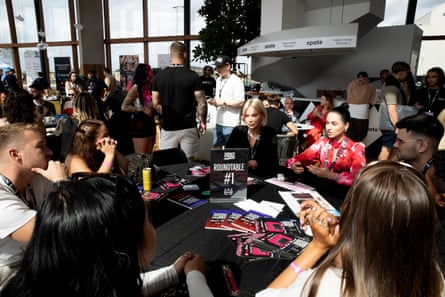
“You wouldn’t know it was AI!” he says, swiping left for more choking content. “It looks so real.” (The British government this year committed to banning pornographic content that depicts strangulation; it is not yet clear if the ban will stretch to AI-generated content.)
He speaks with the self-congratulation of a 1950s salesman presenting housewives with new labour-saving washing machines. “Fans want customised content. If you want to see her in ripped lingerie having doggy sex in a cave, the creators don’t have time to film that, so we leverage AI to help them. We want to help creators unlock productivity and let them earn as much as they can,” he says, apparently unaware of how weird it is for men who are hoping to get rich from pornography to pretend they are nobly doing women a favour.
A little later, British creator Lily Phillips arrives in the lobby. She became famous last year after filming herself having sex with 100 men in a day. “I’m just here for a good time!” she says, determinedly upbeat, dressed down in a cream tracksuit.
Since her viral stunt, another British creator, Bonnie Blue, claims to have slept with more than 1,000 men in a day. Phillips, 24, therefore has to come up with a new way to grab people’s attention. The answer? Widowers. Recently she revealed plans to film herself sleeping with large numbers of them. These extreme attempts to recruit paying subscribers can be risky. An Australian OnlyFans creator was hospitalised earlier this year after filming a challenge where she had sex with 583 men in one day. She later put the hospitalisation down to stress, adding: “I think my body just finally had enough.”
Phillips tells me she is contemplating creating an AI bot of herself, to create and sell photos to fans, to reduce her workload.
“They [the fans] would know it was AI, but some men might want to see me in positions that I can’t get into myself. I’m not that flexible, but an AI bot could do the splits, and that might differentiate from the content that I have on my own page,” she says. “Who doesn’t want to make money from doing not a lot?”
Some adult film producers are relaxed about the risk of AI making their work obsolete. “We were all freaking the fuck out about this two years ago,” one says, adding that he is no longer so worried that AI will replace real humans on screen. “We sell serotonin, cortisol, dopamine. We are all about emotions. I think there’s no threat to creators.”
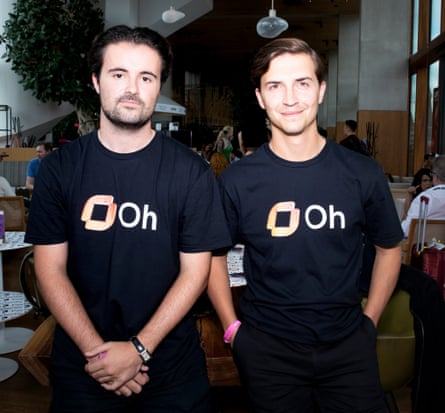
Two well-spoken British entrepreneurs, Felix Henderson and Nic Young, want to talk about their new digital twins company. This involves licensing celebrities’ voices and a portfolio of old photographs from their career heydays, and programming the resulting avatars to undress.
The site will enable women to prolong their careers, Young says, mitigating the alarming threat of ageing. “Ultimately, a lot of the fans are relatively fickle. There are some creators who like the idea of having their image frozen in time. They want to continue earning money in this space, so they like the idea that they can effectively earn off how they appear today, and give themselves the career longevity they don’t necessarily have.”
He too tries to argue that his AI business will have the happy side-effect of liberating women from the still stigmatised business of taking their clothes off for money. “I would say it’s the most positive, ethical step forward that you could possibly make.”
I last attended an Xbiz conference 11 years ago. In the gloomy basement of a faded 1970s hotel in London’s Edgware Road, I heard depressed executives discuss how the rise of free streaming websites was resulting in a rash of bankruptcies for businesses that had previously been flourishing.
Since then, the industry has changed beyond all recognition, with the proliferation of smartphones and the 2016 launch of OnlyFans by the Essex-based Stokely family. These changes mean anyone can now record themselves, upload the video or pictures, and charge subscribers a monthly fee to see what they’ve produced, have online chats and request individualised content. Creators take 80% of their earnings, while 20% goes to OnlyFans.
The company does not describe itself as a pornography site. The CEO, Keily Blair, never uses the term, because she thinks it is pejorative, referring to it as “the P word” in a recent interview. She prefers to talk about “adult content” and has stressed that the platform also hosts yoga, sports and comedy videos, arguing that not all subscribers are interested in explicit content. Nonetheless, the overwhelming majority of uploaded material is pornographic.
The OnlyFans revolution means more people are filming adult content for money than ever before. A referral scheme means current creators can sign up other people to take part, receiving a 5% commission from their first year of earnings. The number of users and creators soared during Covid. In 2021, there were roughly 2m content creators. There are now 4.63m.
The women at Xbiz argue the business model is safe and empowering, an improvement on the days when they were directed by studio producers, had little control over their boundaries and were routinely exploited financially.
There is no doubt that unprecedented numbers of people are consuming pornography and the industry is turning a huge profit. In the UK, a third of men say they watch pornography at least once a week and the average age people first see pornography – often not on purpose – is 13. Globally, more than 377.5 million people have an OnlyFans user account.
Leonid Radvinsky, the Ukrainian-American who bought OnlyFans from the Stokeley family in 2018, received $701m in dividends last year. Creators received $5.8bn for their work. The largest market is in the US, but the company is based in the UK, where it paid £127m in tax last year.
I ask Lily Phillips how she feels about Radvinsky earning $701m by taking a cut of the monumentally hard work she and other creators are doing (his net worth was estimated by Forbes magazine at $7.8bn). “I actually don’t know who he is,” she says, shrugging when I explain. “There’s always going to be someone higher up than you, who’s doing better than you, who’s got more power.”
The distribution of creator earnings is very uneven, according to industry analysts: the top accounts can earn over $100,000 a month, but the median account makes $180. The top 10% of creators make 73% of the money, while the top 1% make 33% of the money. (An OnlyFans spokesperson says this analysis is speculative, because the company does not release breakdowns of creator earnings.)
Most of the creators at the conference are likely to be members of that successful minority, willingly championing the industry. Although content creators were given free tickets to the conference, they had to cover hotel costs and their travel to the Netherlands.
Gemma Kelly, the head of policy at Cease, the Centre to End All Sexual Exploitation, says OnlyFans follows the same logic of any form of commercial sexual exploitation. “There will always be a small percentage of women, predominantly, who feel like this is working for them as a chosen career path. It’s the 90% of women that we don’t see that are the ones who are the most exploited, the most vulnerable. These women aren’t travelling to Amsterdam to party for three days.”

Even the women who are successful on the site acknowledge it is immensely hard work to hang on to their subscribers when the internet is saturated with explicit content.
A male creator, who asks not to be named, says some people seem to think what they do is easy. “Some of my friends say: ‘I’m so strapped for money, I’ll just open an OnlyFans account.’ They think the only barrier to making money is just showing yourself naked. They think you just have to snap a picture of yourself, upload it and make $1m. A lot of people go into this without knowing how much time it takes.”
Kali Kingsley is a smiley 23-year-old creator from Hertfordshire. Two years ago, she gave up a job in motor sports to produce OnlyFans content full-time. She tries to take weekends off, but from Monday to Friday she works from the moment she wakes up – when she takes a photograph of herself in her underwear – to the moment she goes to bed at night. Her days are spent sending messages to her fans, who pay $30 a month to see her explicit videos and chat to her online; she aims to have sex with another creator (a collaboration) about once a week. She describes her content as “Valentine’s Day style” and says that for people who have grown up sexting friends, posting bikini shots of themselves on Instagram and becoming influencers, OnlyFans can feel like a “natural progression”.
“Every girl takes photos of themselves in pretty lingerie,” she says, “and then you find out you can actually make money from it … You’re making money you probably couldn’t in other fields. For our generation, it’s something that’s just done. It’s the older generation that see it as taboo or sensitive. There’s a huge misconception about the industry. Everyone is very lovely, the women are empowered by it.”
It is difficult to know what to make of this relentless positivity. Making money is obviously important and can be liberating, but it’s hard not to feel sceptical about how empowering the work really is, and doubtful of the wisdom of embarking on it as a career.

Spanish film-maker Paulita Pappel (who wins best director at the adult awards at the end of the conference) is frustrated by this scepticism. “Porn is not always exploitative of women,” she says. “The fact that a lot of women believe that women in porn are being exploited and are victims makes their life way harder. It suggests that women have no sexual agency, and that men are predators, that women wouldn’t perform pornography or sell sexual services if they didn’t have to. If you’re shaming these women, you’re not helping.”
Industry executives work hard at the conference to sell the idea of this as a dream lifestyle. Outside the hotel, a blond model draws up in a pink convertible, branded with the logo for AS Talent, a Ukrainian-owned, Warsaw-based OnlyFans model management agency. Inside, the firm’s agents circle the room trying to sign up new talent. “We make your life richer!” promises the company’s website.
Ukrainian creators have recently been petitioning Volodymyr Zelenskyy to decriminalise pornography, pointing out that he is forfeiting tax revenues from the thousands of Ukrainian women filming explicit content without paying tax. In a country where war has devastated the economy, OnlyFans offers an alternative revenue stream for some. “They can earn many times more than they could in a basic job,” says one of the AS Talent agents, asking me not to print his name. (Given how profoundly uninhibited the industry requires women to be, there is a curious shyness among many of the men about revealing their names.)
The hotel has an Indonesian rainforest theme, so delegates make their way to the keynote sessions through tropical palm trees, stepping across a mock rope bridge. But once inside the conference rooms, the occasion has all the glamour of a regional sales and marketing convention.
“I’m trying to get random dudes to buy porn! That’s my goal!” Leah Koons, the director of marketing at Fansly, an OnlyFans competitor, tells a packed room. During her “Keys to Creator Success” panel, she urges the creators to be their “authentic selves” to maximise profitability. In jeans, a bomber jacket and glasses, no makeup, she offers big sister warmth, encouraging the audience to “Hit me up with your questions!” and exclaiming “Awesome!” and “Proud of you!” when they tell her about their work and how frequently they are uploading content.
But she also suggests they slow down a bit and warns creators not to exhaust themselves by trying to film too much. “The burnout comes from the feeling of: ‘Holy shit. This will never end; this will never stop!’” she says, adding that analysis of traffic and data is the best way to work out what and when to post. “It’s better to post bangers that have a hook, and make people watch all the way to the end.” Creators shouldn’t think: “‘Oh my God, if I don’t post every single day that I’m going to get fucked by the algorithm.’ It doesn’t work like that.”
Fansly can only make money if its creators are steadily, reliably producing monetisable content. It stands to reason Koons wants them to avoid getting exhausted and sick. Her advice is useful for the creators, but also extremely useful for the platform.
“The age verification firms, they’re the bottom feeders, feeding off our industry!” says the male owner of a payments company during a discussion of international attempts to prevent children from seeing adult content. “They want these laws to be in place so they can grow their businesses. They’re not our friends.”
In the room next door, Pornhub’s vice-president of community and brand, Alex Kekesi, says it has shut down access to its site in France and 21 US states, because of compliance difficulties. The company is thinking about rolling out a “safe for work” version, to ease regulatory problems, but Kekesi tells creators not to worry. “We’re very lucky because we have more than 130 million users a day. There are still a lot of people coming to this site. People still want to get their porn, so it’s a really great site.” She lists a number of “really cool discovery features” aimed at bringing new audiences to the site.
She also encourages the audience to check out a “really wonderful video series” produced by the company, “destigmatising mental health in the adult industry. That’s something that a lot of us in the industry struggle with, unfortunately, but I don’t think that’s a reason not to talk about it.”
It feels difficult to reconcile her bland, spreadsheet-heavy presentation with the content on the Pornhub homepage. You could come away from most of the Xbiz panels thinking the material under discussion is mostly naked cuddles mixed with some curious erotic cosplay.
But the images and headlines on Pornhub’s homepage present a very different picture. “Extreme throat fuck, no mercy for her throat, huge bulge,” one promises. Incest fantasies are rife, and permitted on the platform by the addition of the word “step”. “Stepdaddy fucked my virgin asshole on my boyfriend’s birthday. Petite 18yo Asian bondage.” Some seem loosely suggestive of child abuse: “I teach my little stepsister how to play on the cell phone and end up fucking her hard.” Video teaser clips show women with skin that seems painfully reddened by slapping. The material is misogynistic (“She loves being used like meat”) and often looks violent and painful, but delegates seemed curiously disinclined to discuss this. They would rather talk about wellness.
It is harder to assess the content on sites such as OnlyFans because of the paywall, but anti-pornography researchers cite frequent use of words such as whore and bitch, and some titles suggest the women on offer are young, shy and inexperienced.
But then teen content, also known as “barely legal” material, is everywhere. Several creators at the conference look startlingly young, their hair tied in bows; one model agency specialises in recruiting young-looking women. A male producer in his 50s describes his interest in teen content, self-forgivingly, as his “kink”, and stresses that it is not illegal. The recent Channel 4 documentary on Bonnie Blue showed young creators in school uniforms preparing to perform an orgy in a classroom. This kind of content would not have been cleared for broadcast in cinemas in the UK, but is widely permitted online.
At the end of the panel, I ask Kekesi if she thinks this content is empowering for women. “What’s empowering for some people is not the same for everyone, right?” she replies, adding that moderators check that consent forms are filled out before the recording of violent content.
“Something that might feel very violent for me or for you is someone else’s good time,” she says. “I know that’s something that can be difficult to contend with.”
She does not mention that the company agreed just days earlier to settle charges by the US Federal Trade Commission and the state of Utah that Pornhub deceived users by doing little to block videos and photos featuring child sexual abuse material and nonconsensual content material. The company was required to establish a program to prevent the distribution of child sexual abuse material and nonconsensual material on its websites and pay a $5m penalty to the state of Utah.
She says the platform has no issue with the popularity of step-incest. “That’s not incest, that’s fantasy, so it’s permitted.”

Downstairs, staff from Pineapple Support – an industry-funded, not-for-profit organisation that provides mental health services to professionals in the adult industry – is handing out advice on dealing with stress, promising to help attendees “identify and dispel whatever’s weighing you down”. The organisation recently launched a free online support group to help performers navigate thoughts of suicide.
At another round table, Evie Rees, a British creator, hosts a session on “achieving longevity in the industry”. (Again, the executives sponsoring the event want women to keep going for as long as possible, bringing in the 20% for the platforms.) Rees has candyfloss pink hair, pink clothes and pink nails, a look unsettlingly reminiscent of Stephanie from Lazytown, a 00s television programme that was aimed at under-fives. She speaks honestly of the need to take mental health seriously and acknowledges the work can be overwhelming. “You can be in a bad mood, and be like: ‘I know this is my job, but right now getting naked on camera makes me want to fucking cry.’”
Aery Tiefling, a former IT student in her 20s from a small town in Spain, asks how fellow creators deal with getting sick. For several months, she has had repeated bouts of pneumonia, which make it challenging to record new videos. The pressure to keep working has made it hard to shake off the infection. She also wonders what they should do if they want to get pregnant. If fans are left without new material, they might stop paying their monthly subscription fees. Rees recommends trying to store up months’ worth of extra content in advance, in case of future illness.
Tiefling says later that frustration with her low-paid IT job was a big driver in her decision to start selling explicit videos on OnlyFans and other platforms of her laying silicone eggs (a niche pregnancy and breeding fetish).
“This is a very bleak period for young people,” she says. “People talk a lot about dignity, but there’s not much dignity for the younger generations, because you’re earning very little money, and you pay your rent and you pay for your food, and you run out of money. There’s no dignity in that, because you can’t choose to have a bigger house, to have a family, two or three kids.” Her adult career has increased her monthly earnings tenfold.
Her decision to enter the industry possibly went deeper than simply wanting to earn more, though, she says. “I feel like a lot of content creators in this area come from troubled families. Comments online sometimes are like: ‘Your parents would not be proud of you.’ I feel like a lot of content creators come from families where they are not proud of their own parents.” Her parents were not very responsible with money growing up, she says. “This is also why I thought about this kind of job, because I know that I can support myself, and I know that if my family gets in trouble, I can always help them.”
Many of her school friends, some of whom work in low-paid healthcare jobs, are struggling financially. “They often ask me for tips, because they want to get into the industry as well.” She is circumspect about advising others to get involved. The constant pressure she feels to record content, while still suffering from pneumonia, has made her unwell. “If you’re working in corporate, if you’re sick, you go to the doctor, you ask for medical leave, and you can go home and recover …” This work, she says, can be “hard on your mind”.
Lily Phillips is also cautious about encouraging other people into the industry. When I ask if she would recommend the work to younger women, I feel uncomfortable, because the question could appear steeped in disapproval. In a recent documentary, Phillips was shown in tears, as her parents explained on camera that they loved her but felt her work was degrading. If she is irritated by my question, the only sign is a short pause and intake of breath; her persona is unflinchingly agreeable.
“I have 110% always said: think about it a while,” she says. “It’s a big commitment. It affects every aspect of your life for the rest of your lifetime – relationships, friends, family – the social constructs you get from being a sex worker. A lot of people have a lot to say about what we do.”

 3 months ago
47
3 months ago
47
